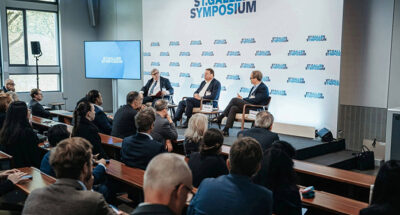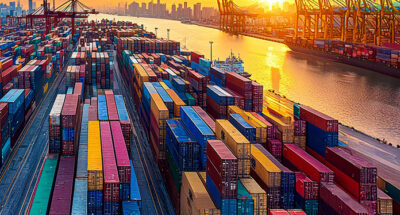
Six ways boards can take the lead in an era of mistrust
Board members have a central role to play in helping organizations steer a safe path in a polarized and skeptical world....
Audio available

by Mark J. Greeven Published 14 June 2024 in Geopolitics • 4 min read
Western policy concerns about Chinese electric vehicles (EVs) are nothing new. They represent yet another episode in an ongoing trade conflict that is part of a broad rebalancing of global economic and political power.
In these disputes, US and EU policymakers have frequently accused Chinese companies of relying on unfair subsidies, stolen intellectual property, or inappropriate labor practices to overproduce goods that are then dumped on Western markets. This, in turn, undermines domestic industries in the importing states. During China’s economic rise, these critiques were sometimes valid. Extensive Chinese state subsidies of solar panels prior to 2020 did seem to exhibit at least some of these behaviors.
However, assuming that current Chinese advantages in EV production are part of the same story, shows a significant misunderstanding of recent dynamics in the global automobile industry. It also risks missing a possible inflection point in the economic challenge that Chinese companies present to Western counterparts.

“Because of China’s superior technology and general manufacturing advantages, including better access (for the time being, at least) to the raw materials required to produce EV technology, it is also manufacturing EVs far more cheaply than other countries.”
Within the context of an overall strategy to green the country, Chinese EVs have benefited from direct and indirect support from both central and local governments. A core element of this policy is to make EVs affordable to the broader Chinese population.
Such support for the vehicle industry is certainly not unheard of in Western countries. This has happened at a national level or within various jurisdictions offering tax breaks and other inducements to attract production facilities.
China’s effort to electrify its own vehicle fleet has involved substantial investment in R&D, bringing a host of technological advances. China’s battery technology, for example, is now the best in the world. More generally, even according to auto executives from other countries, output from Chinese factories is far from low-quality. In reality, they are innovative, high-end vehicles that often outperform German, Japanese, and US competitors, barring Tesla, at least from the consumer’s and technology’s point of view. Because of China’s superior technology and general manufacturing advantages, including better access (for the time being, at least) to the raw materials required to produce EV technology, it is also manufacturing EVs far more cheaply than other countries.

“Also, raising trade tariffs in Europe and the US does not leave Chinese companies without options.”
With this understanding of the situation in China, Western high-tariff policies begin to look misguided. As governments face resistance to the cost of their net-zero plans, it is unwise of them to block consumer access to higher-quality, greener products at lower prices. Moreover, contrary to popular opinion, the Chinese share of EVs in Europe, for instance, is generally low and only a fraction of the total share.
In any case, examples of effective tariffs are few and far between. Instead, the result is often to shelter local firms from competitive pressure, leading to technological stagnation. A situation that we have seen happening in reverse in China is where China’s often rigid policies for foreign companies and sometimes wholesale blocking of companies, such as in the tech sector, have done more harm than help to Chinese competition. A better policy alternative for the longer term is to encourage the development of the local industry and advancing technologies.
Also, raising trade tariffs in Europe and the US does not leave Chinese companies without options. We have already witnessed numerous Chinese EV producers shifting their attention away from Europe and the US to other emerging economies such as Brazil, the Middle East and Southeast Asia. The world is bigger than Western Europe and the US.
Despite the inevitable sound and fury from Western officials, Chinese auto executives are justifiably excited and optimistic that, even in a shifting, unpredictable geopolitical environment, their market-leading product ranges can meet worldwide demand for green transport.

Professor of Management Innovation, Dean of IMD Asia, Chief Executive of IMD China
Mark Greeven is Professor of Management Innovation and Strategy and Dean of Asia at IMD, where he co-directs the Building Digital Ecosystems program and the Strategy for Future Readiness program. Drawing on two decades of experience in research, teaching, and consulting in China, he explores how to organize innovation in a turbulent world. Greeven is responsible for the school’s activities and outreach across China and is a founding member of the Business Ecosystem Alliance. He is ranked on the 2023 Thinkers50 list of global management thinkers.

19 May 2025 • by Peter Voser in Geopolitics
Board members have a central role to play in helping organizations steer a safe path in a polarized and skeptical world....
 Audio available
Audio available
14 May 2025 • by Christian Stutz in Geopolitics
When trade barriers rise and key markets collapse, companies face tough strategic decisions. Lessons from Finnish industry offer a practical playbook for navigating exit under uncertainty. ...

13 May 2025 • by Simon J. Evenett in Geopolitics
As tariff tensions simmer and uncertainty clouds the future of global trade, freight industry leaders reflect on how businesses can brace for potential shortages, adapt supply chains, and stay resilient in a...

28 April 2025 in Geopolitics
As global trade tensions and US tariffs disrupt conventional supply chains, corporate leaders must reconsider resilience through strategic diversification, regionalization, and risk management in order to remain competitive in an increasingly protectionist...
Explore first person business intelligence from top minds curated for a global executive audience